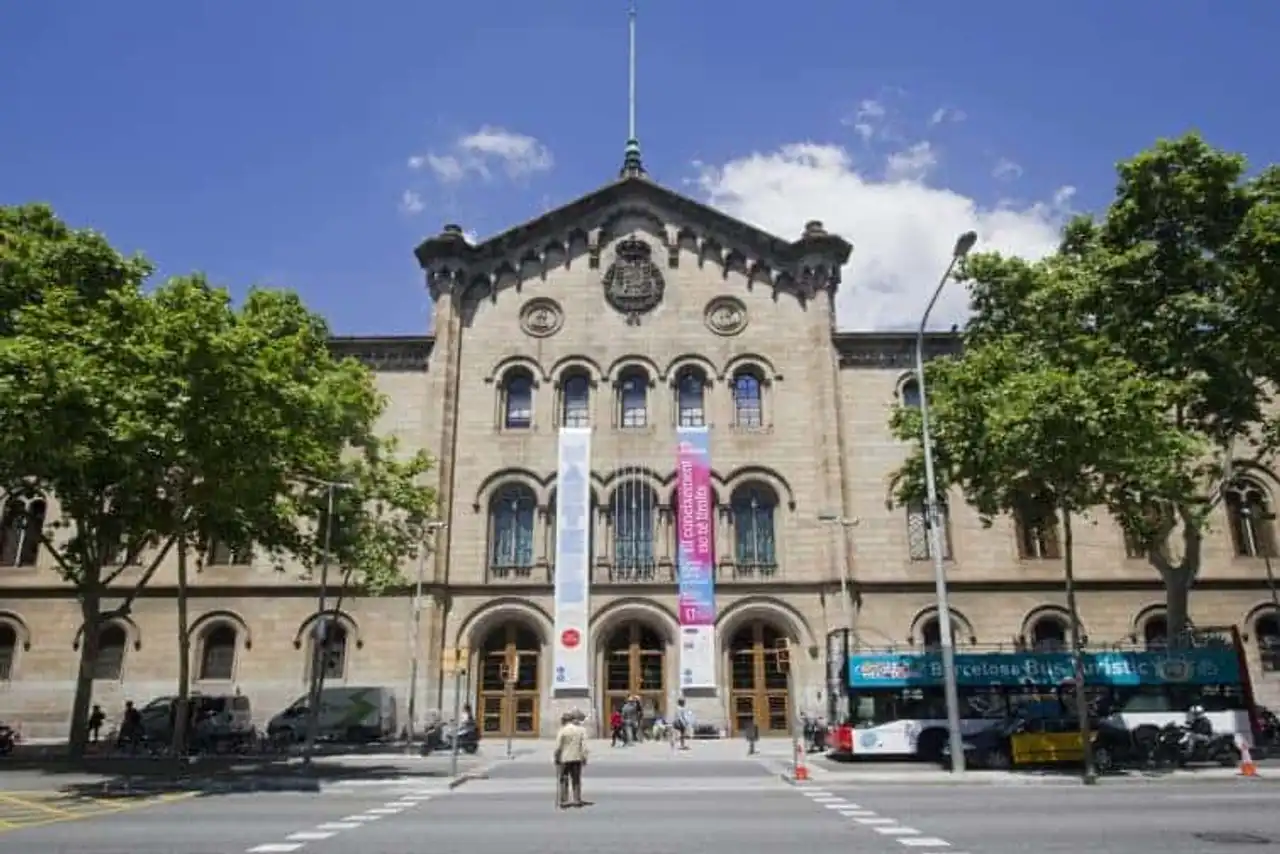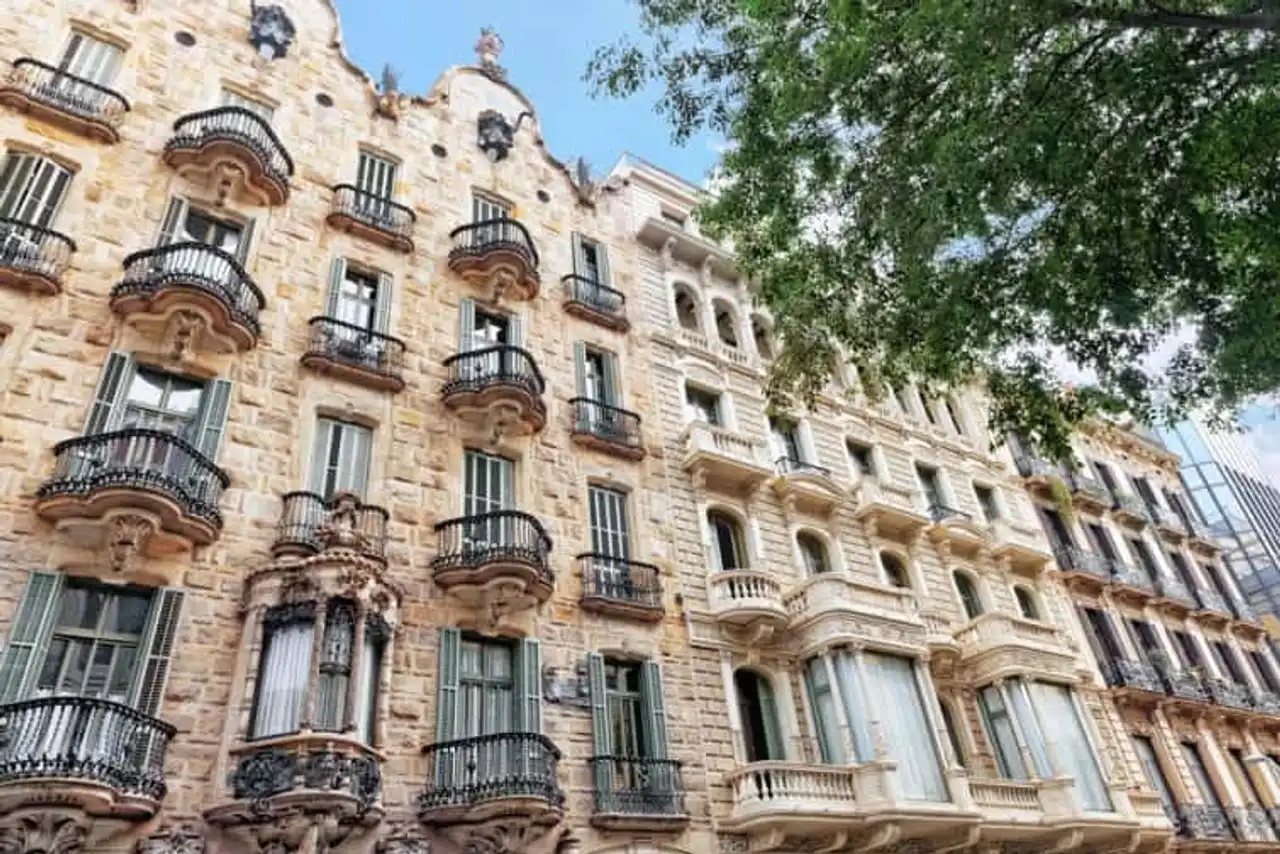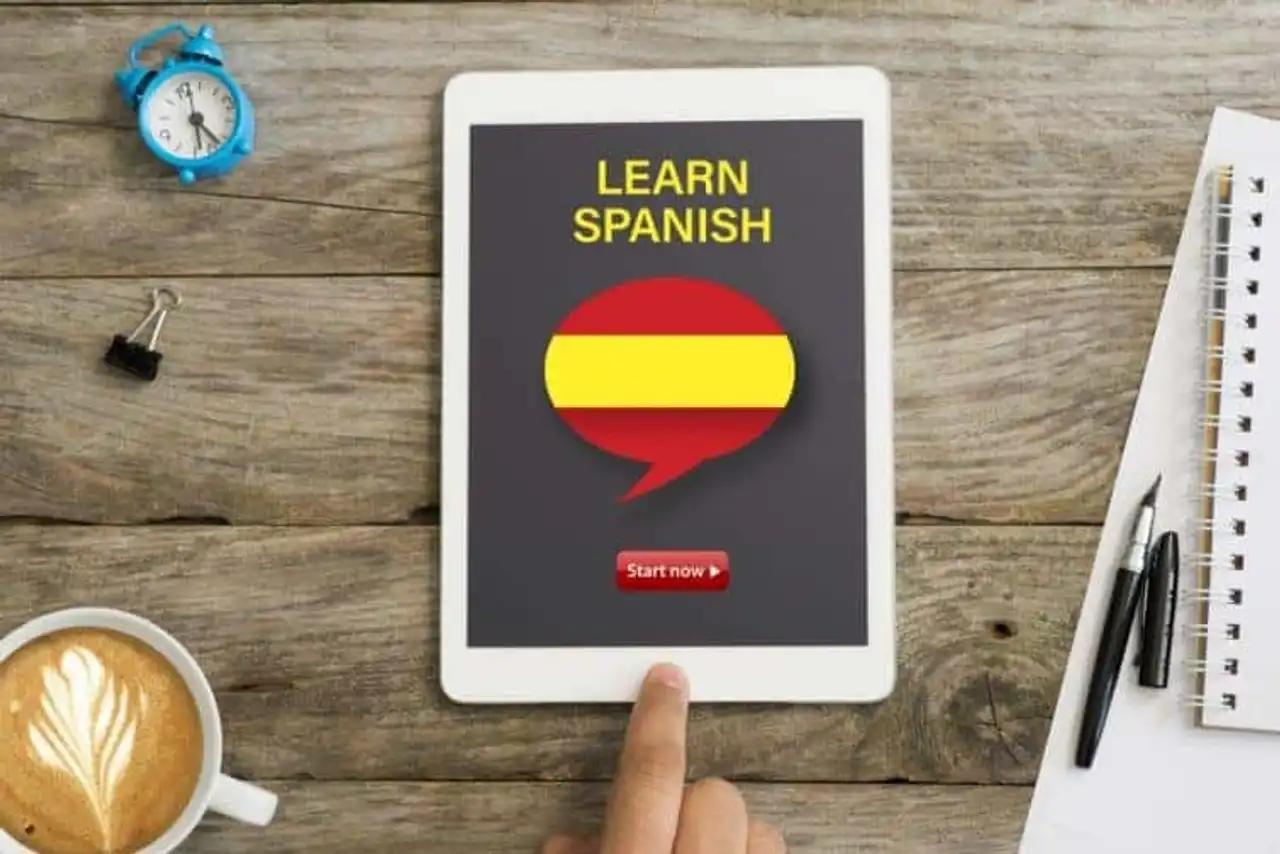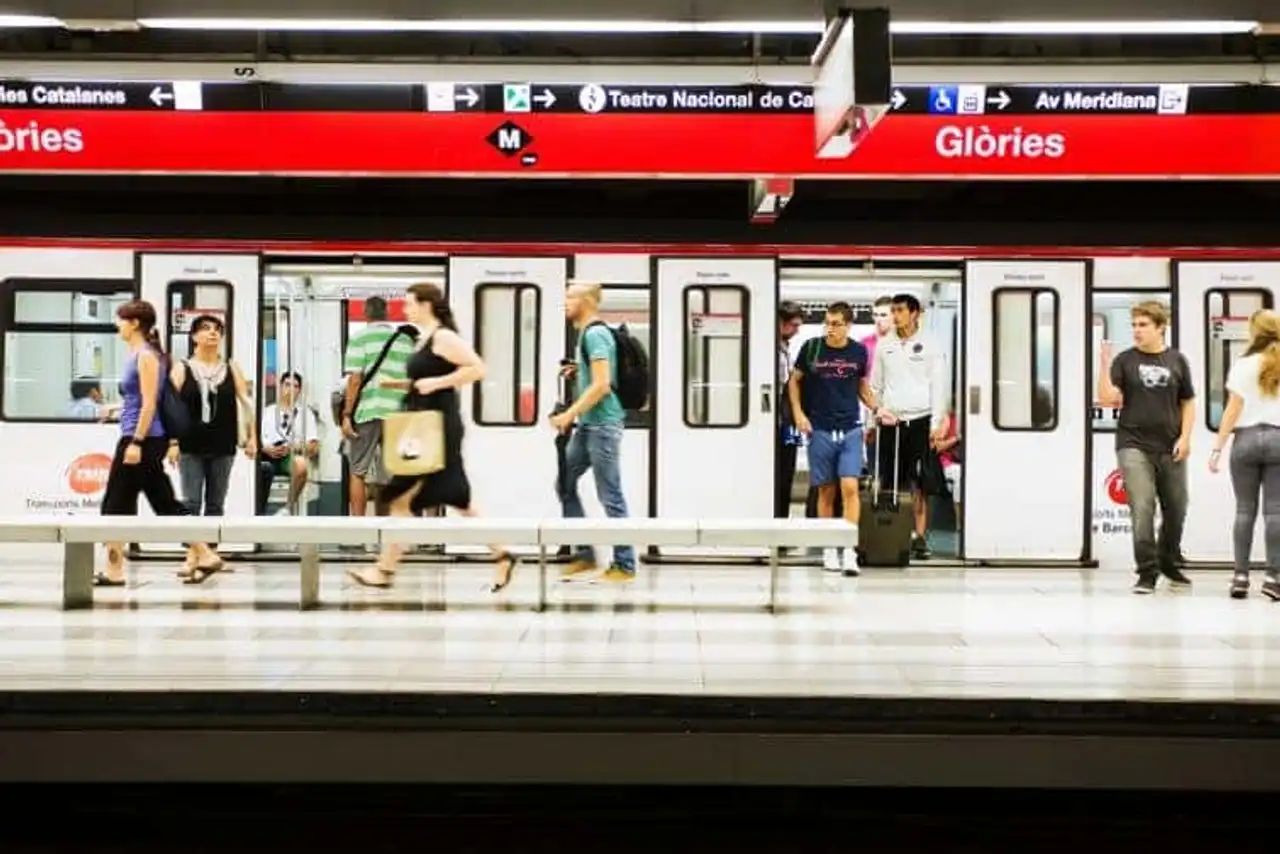Why go to study in Barcelona? How does the Erasmus program work in Barcelona? Discover everything in this article!
In the north-east of Spain, by the sea and imbued with the Gaudian architectural influence, Barcelona is a city of about 1.6 million inhabitants. Each year, it hosts more than 12,000 international students. With a mild climate, a cosmopolitan and festive atmosphere all year round, Barcelona attracts many French students since the Erasmus program was born in 1987.
So, ready to jump? If you want to go to Erasmus in Barcelona, follow the guide!
Which universities have twinning with the universities of Barcelona?

Photo credit: Shutterstock – jan kranendonk
If you want to make Erasmus in Barcelona, there are hundreds of agreements between the universities of the Catalan capital and the French, Swiss or Belgian universities. The 4 major public universities in Barcelona hosting Erasmus students are:
- AUB: Universitat Autònoma de Barcelona ;
- UB: Universitat de Barcelona ;
- UPC: Universitat Politècnica de Catalunya ;
- UPF: Universitat Pompeu Fabra.
Here is also a non-exhaustive list of French-speaking universities partners from these 4 universities in the Netherlands:
- L’University of Burgundy ;
- Lyon and the**Université Claude Bernard Lyon 1** ;
- L’Université Paris Diderot ;
- Still in Paris, the**Université Paris Descartes** ;
- L’University of Rouen ;
- Belgium is also present, for example the**University of Liège** ;
- etc.
Most European universities are partners in one of the universities in Barcelona. However, if you absolutely want to go to study in Barcelona, you have to make sure your curriculum is compatible with one of the trade agreements. Let's cross your fingers!
What are the predilection materials to study in Barcelona?
If you are going to study in Barcelona, know that universities offer a wide range of interesting materials. However, some substances are more studied and taken than others:
- The Trade,
- biochemistry,
- ♪ Social sciences,
- medicine,
- ♪ languages,
- ♪ fine arts,
- And the Math.
What is the amount of the Erasmus Scholarship and how to get it?
The Erasmus scholarship for studies in Spain is included between 150€ and 250€/month . For the Erasmus+ internship scholarship, it is understood between 300€ and 400€/month . These two helpers are cumulative with the scholarship on social criteria of the CROUS, assistance to the international mobility and other regional aids.
To get an Erasmus scholarship, you must:
- To be registered in a higher education institution;
- To be completed your first year of study;
- Going between 3 months and 1 year in a partner university of yours;
- Take steps respecting the terms and conditions of your French university.
Erasmus scholarship application is made directly with your establishment of origin at the service of International Relations. Generally, there is no problem to get it, make sure to check the deadline file deposit and anticipate your actions to the maximum.
Good to know: one bursaries exists in some cities. Help is about 150€ per month in Paris, for example. Every town hall works in its own way, so to know if your city offers this scholarship, you can learn directly from your town hall.
How to find a rental or accommodation in Barcelona?

Photo credit: Shutterstock – V_E
Is finding accommodation in Barcelona difficult?
Finding accommodation in Barcelona is one of the most important tasks difficult . However far from being an impossible mission, it is enough to be expected and a minimum on his guards to get out of it without a bad surprise.
In terms of rent, Barcelona is the city Most expensive from Spain, therefore count between 300€ and 600€ on average for one room (single or double) and not less 600€ For a little studio.
It is strongly advised to students of not accepting to pay bail or booking fees before visiting the accommodation in Barcelona. Indeed, given the extremely important demand, some announcements may be made fraudulent and/or non-conformities to the published photos. Be wise and prefer to visit your apartments in person. Better for a few days in a youth hostel housing research ideal that a disappointing and stressful arrival that will lead to your early move.
Also, do not agree to rent a room without contract. Without a contract, you have no security and the owner or principal tenant can decide to put you at the door of the day the next day. A word of order: vigilance.
Where to get a housing?
Here are some methods to find accommodation in Barcelona:
- Pisocompartdo.com : this is the most popular site to find your rental in Spain. You will find photos, detailed descriptions, rent with or without charges, amount of bail, etc. This is a contact site, you do not sign a contract via this site or pay a booking fee.
- Spotahome: same style as pisocompartdo with the only difference that you pay online booking fees here.
- Mil anuncios: the good Spanish corner.The facebook group of French in Barcelona : with more than 20,000 members, this group can be of great use to find a room in colocation.
- Student residences: there is no equivalent to the CROUS residences in Spain. You will find student residences and accommodations reserved for students on uniplaces.com or Barcelona Centre Universitari for example but their rent is often very high.
Good to know: the Spanish term fianza means “caution”. Don't be surprised to find him in the majority of ads. This is usually equivalent to a month's rent for a room in colocation. Maximum two. Beyond that, it's better to pass her way.
How to learn Spanish before arriving in Barcelona?

Photo credit: Shutterstock / Eviart
Know that in Barcelona, two languages are officially spoken and written: Catalan and Castilian (Spanish). Close to 60% of courses are offered in Catalan , you will need to be well informed upstream in order to know what language your courses will be taught. As for exams, you can pass them in Castilian or English, even for subjects whose courses are taught in Catalan.
In any case, if you have no notion of these two languages, we advise you learning rudiments if possible before arriving AND on site. For this, several options are available to you:
- Use one of the applications learning languages such as Busuu or Babbel;
- Taking special courses or go to one language school before arriving or arriving. To find a good teacher (and not too expensive) in Barcelona, the site tusclasesparticulares.com is particularly useful.
Do we need travel insurance to study in Barcelona?
No, not necessarily. As Spain is part of the European Union, you will simply need your European Health Insurance Card (CEAM) to be reimbursed for the majority of on-site health expenses.
Do not forget to ask here before leaving! Count between 15 days and 1 month to receive it at your French home. Some universities may still offer you insurance for international students to cover non-refunded expenses by the social security .
Do we need a local bank account?
For a classic Erasmus in Barcelona
This depends on your situation as a student. If you participate in the classic Erasmus exchange and study at the university between 3 to 12 months , no obligation to open a local bank account is your responsibility.
Nevertheless, we do advise inform you with your French bank. Ask for the following information:
- ♪ Payment options and withdrawal your credit card,
- The amount of yours ceiling,
- And the potential transfers on a Spanish account (for your rent, for example).
Some banks (such as Crédit Agricole) do not allow the addition of an international transfer beneficiary account without your oral authorization. If, however, your French bank imposed too large withdrawal costs abroad, the ING direct bank is ideal. The opening of the account is completely free and no fees You are not taken.
For an Erasmus in Barcelona with internship
Second case, you participate in the Erasmus program and are a paid intern in a company in Barcelona. If your employer pays your internship (what we wish you) may ask to open a local account to facilitate transactions. In any case, we advise you avoiding national banks whose costs are generally high.
Attention: If you need to open a bank account in Barcelona, the Foreigner Identification Number (NIE) will be requested. Required from 3 months of stay in Spain, you can get it by starting your steps online this way .
Good to know: obtaining an appointment to receive the NIE is complicated Barcelona. Small advice, connect to the platform on Monday at 8 a.m. or ask for help from your host university.
How to use local transport?

Photo credit: Shutterstock / Lena Ivanova
In Barcelona, the public transport network is very easy to be used and cheap compared to other major European cities. If you ever need to use the metro several times daily and under 25 years old, the best option is the tarjeta T-jove to 80€ . This map gives you the right to unlimited transport (metro, tram, bus) while 3 months . However, you will need the NIE to get it.
If you have over 25 years , opt for the T-usual to 40€ for 30 days Unlimited.
Finally, if you only occasionally use transport, T-casual is ideal: 10 trips for about 11€ and no need for NIE. You can also move on a classic or electric bike thanks to Bicing .
What is the cost of living in Barcelona?
Accommodation is expensive in Barcelona but apart from that, Spain is a country whose cost of living is slightly lower France. You will see the difference in the exits and small beers on the terrace (to be consumed with moderation of course) !
The average budget of a student in Barcelona is 700€ by month, as follows:
- 30€ for the transport map ;
- Come on. 300 € and 600 € for the rent (with charges)
- Environ 150€ for races.
This will also include school affairs, outings, unforeseen travel. To give you an idea of the cost of living in the Catalan capital, here are some average prices:
- Lunch at noon: 3€ and 7€ ;
- A kebab: 5€ ;
- A beer: less 2€ ;
- A place of cinema: 5-6€ for a student;
- An entrance to the museum: many museums free every Sunday, costing about 5€ the rest of the time;
- A unique metro ticket: 2€40.
How is student life in Barcelona?

Photo credit: Shutterstock – DisobeyArt
The life of an Erasmus student in Barcelona is very dynamic , artistic art , festive and cosmopolite . There are several student associations in this city that offer all kinds of sports and cultural activities. L’ ESN Barcelona (Exchange Erasmus Student Network) offers an ESN Card to 10€ allowing you to access dozens of promotions on activities and trips.
In addition, this same association will offer you to participate in the Buddy Program, an accompanying program that will assign you a referee from the beginning of your stay. It will help you integrate, find accommodation, meet other foreign and local students, speak Catalan and/or Spanish, etc...
Many Student holidays are also organized each month And there are for all tastes! Finally, you can’t leave Barcelona without having made a concert at the Apollo or participated in an evening at the Razzmatazz!
How is local gastronomy?

Photo credit: Shutterstock – casanisa
The gastronomy in Barcelona reflects everything else: cosmopolite . Many beach restaurants will offer fish-based and crustacean dishes, you will find Asian, African, North American, South American, European, vegans, vegetarians... There is absolutely for all tastes!
On the other hand, tapas bars so symbolic of Spain are not particularly present in the Catalan capital. And if they are, quality is often not at the rendezvous.
In the supermarket you will find everything you need, even typical French products that you would miss: various and varied cheeses, butter, purée, croissants...
I mean, por último pero no menos importante (“last but not least”), the charcuterie (Iberianjambon, serrano ham, chorizo, among others) is absolutely delicious.
Good to know: Catalans have lunches late enough (approx. 14h) and dinner late (about 21h).
What are the neighborhoods to get out?
The neighbourhoods of Gràcia, El Born, El Barri Gòtic, El Raval and Barceloneta are the main areas to celebrate in Barcelona. Also, don’t leave the city without taking a drink at the Marsella, the oldest bar in Barcelona, attend the famous Primavera Sound festival or drink a sangria at the Vella Negra (a convent for nuns transformed into a bar in El Raval)!
Other tips for future students in Barcelona
The neighborhoods more frequent by tourists (so noisy) are the neighborhoods more festive . Don’t hesitate to seeking accommodation in residential areas quieter, such as Sant Martí, Poblenou or Eixample.
Enjoy the surrounding nature and walk or cycle as often as possible. This city is full of architectural treasures and as Erasmus in Barcelona. You will not end up discovering new things!
That’s it, you’re ready to start the Erasmus adventure in Barcelona! Enjoy this extraordinary adventure? Already gone to Erasmus? Tell us your adventures and tips in comments!








Loading comments ...